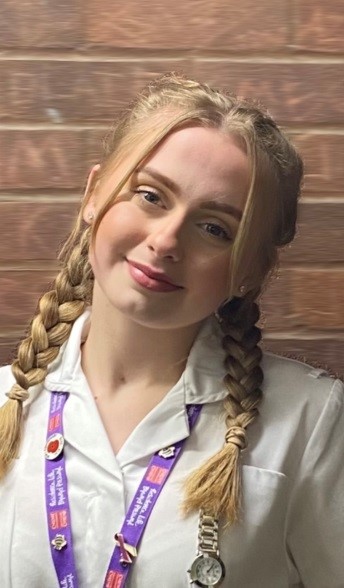My name is Leigha, I’m an eighteen-year-old from Birmingham and a first year at Cardiff University studying Radiotherapy and Oncology.

Leigha Yardley - Student Radiographer
What made you decide on studying Radiography?
I chose to study radiotherapy because my family has been affected by cancer many times and most significantly my mum was diagnosed and treated with radiotherapy for tonsil cancer when I was sixteen. Therefore, my journey of wanting to study radiotherapy started with my mum’s journey and I developed a hope of one day becoming an NHS therapeutic radiographer to give back the priceless debt to the line of work that helped my family.
What subjects did you study before university?
Before university I studied A level Biology and Chemistry as well as a Level 3 BTEC of Health and Social Care. The mix of science A levels provided an aid for the physics and oncology modules within my academic learning. Whereas the health and social care in my opinion provided me with valuable communication skills supporting my clinical placements.
What do you enjoy about the course?
I think the fulfilment of knowing that I had made a patient laugh or helped them within their cancer journey is one of the most fulfilling things about the course, as well as the academic side of the degree which allows me to develop the understanding of the depth and detail that is put into each individual treatment.
What is involved with the clinical placements?
The clinical placements at Cardiff University are held at the three Welsh NHS radiotherapy centres in Cardiff, Swansea and North Wales. The rotations allow students like me to develop the ability to adapt my practice to match the techniques that different centres have. Within my first year I had completed 10 weeks’ worth of placement which is very beneficial to being able to kick-start my professional development welcoming me into the world of radiography.
What types of roles do Radiographers carry out?
Radiographers are involved in many steps of the treatment process such as scanning the patient in preparation for treatment planning, actually planning the treatment, giving the treatment and then guiding the patients through their symptoms and getting back on their feet into normality after the treatment course has finished. The choice of multiple roles that I could possibly work towards in the future is something that intrigues and inspires me as a student.
Would you recommend studying Radiography?
I would definitely recommend this course to those who are interested in the healthcare sector and would like to make a difference to people’s lives. In my opinion the course has just the right balance of science and nurture, I have always been intrigued by science, so I knew I wanted to do a course that still harnessed my interest in physics and chemistry along with patient care. The role of patient care stems further than the patient receiving treatment but also the families that are involved in the journey of their loved one. The fulfilment of supporting families in such a time of need as well as providing possible life saving treatment is why I would recommend studying radiotherapy.
What are your career goals?
After I have completed the course, I hope to become a radiographer within the NHS and fulfil a career that I have already fallen in love with, after my first year of study I have developed an interest into both review and treatment radiography more specifically the review of head and neck cancer patients. So, I think my aspiration in the future is to focus on the possibility of specialising into the care of head and neck cancer patients, to again hope to give patients the same level of amazing care my mum received from the NHS in 2019.

